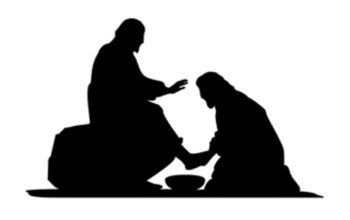
That gospel episode about a blind man sitting on the wayside where Christ was passing by, reminds us about this point: we need to always have hope even if we already would feel totally helpless. (cfr. Lk 18,35-43)
As the gospel narrates, the blind man, upon learning that Christ was passing by, unabashedly cried out to call the attention of Christ. Even if he was rebuked by the others to keep quiet, he continued to cry out. And finally, Christ approached him, asking him what he wanted.
The response was simple and direct: “Lord, that I may see.” It’s a response that should inspire us to also make our requests for some special divine intervention in the same way. We should just say what we want, and if it is for our own good, for sure Christ would grant it.
We know that there is always the possibility for us to fall into some state of helplessness, not only of the transitory type but also of the permanent one. That’s just being realistic. And upon that possibility, let’s make the necessary preparation, building up the appropriate attitude, skills and practices to tackle it.
There’s always hope even in our worst scenario. And that’s because God never leaves us, but continues to love and care for us, in spite of all. He gives us everything we need to handle this situation.
We should be quick to realize this truth of our faith, and act accordingly. Let’s avoid aggravating the situation by avoiding falling into discouragement and depression, a fertile ground for the devil to tempt us into worse conditions. The devil obviously wants us to be alienated as much as possible from God. Rather, like the prodigal son, let’s return to God asking for mercy which he readily gives.
God, of course, does not spare us from falling into some serious, and sometimes insoluble predicaments. That’s because he will always respect the limitations of our nature that can sometimes lead us to some trouble, and more so, our own freedom, no matter how much we misuse and abuse it and lead us to sin, the worst evil.
And even if personally we have not sinned or do not seem to deserve a particular burden, we all suffer just the same as an effect of all the sins of men, ours and those of others. We should not be surprised by this and waste time complaining about it.
In other words, we should never hesitate to ask God for any help we need, especially in times of emergency. Even if our appeals appear to be unanswered, we should just go on asking him, never feeling that we would be disturbing him.
God always listens and cares for us. Our usual problem is that we tend to lose our faith in him or at least to doubt his compassion when we feel our requests appear to be rebuked.
One way to counter this danger is to pray the Rosary. This Marian prayer, which many people consider as boring since they consider it as just a repetition of Our Father’s, Hail Mary’s and Glory be’s, is actually an effective prayer that teaches us how to insist and persevere in our petitions to God.
And we do it with Mary, the mother of God and our mother, who is the most powerful intercessor we can have. We know that, as dramatized in that wedding at Cana, when it is Mary who would make the request on our behalf, Christ would find it difficult to refuse. (Fr. Roy Cimagala)



